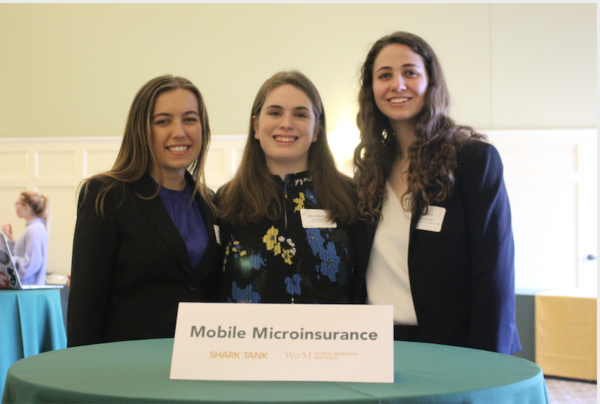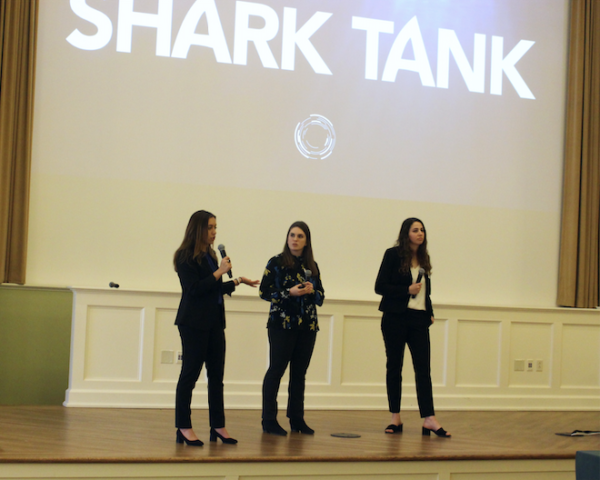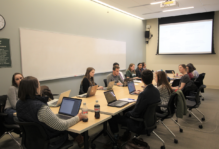In the Field with Mobile Microinsurance
By Maisie Sapner ’20, Laura Schwartz ’20 and Elizabeth Sutterlin ’20
Our team led by mentor Professor Phil Roessler, competed for Shark Tank funding to conduct a field experiment in Kenya aimed at identifying ways to increase access to mobile microinsurance among smallholder farmers. Mobile microinsurance is a form of crop insurance designed to be affordable for farmers with even the least disposable income. The product has significant potential to protect farmers from large-scale climate shocks, helping them cope with losses to their income. Despite its promise, microinsurance remains largely inaccessible to smallholder farmers, and uptake remains low. We were determined to research ways to improve access to this vital technology.
In Summer 2019, members of our team traveled to the Mount Kenya region to conduct preliminary research regarding farmers’ familiarity with microinsurance. During this study, we found that liquidity constraints and lack of trust in insurance providers were the primary barriers to acquisition of microinsurance. We also found that community capacity is high amongst farmers in the region, with many active in farming self-help groups. Motivated by this finding, we proposed to conduct a field lab experiment to test marketing insurance policies to groups. In our experiment, we will offer farmers insurance at a discounted rate if a certain number of farmers within their group purchase insurance. By marketing microinsurance to groups with discount, we aim to leverage existing risk-sharing mechanisms to overcome trust and liquidity barriers to microinsurance access. We will conduct this experiment in partnership with the Agriculture and Climate Risk Enterprise (ACRE) — the lead insurance provider in East Africa.
Overall, the Shark Tank process encouraged us to think critically about our research design and refine our ideas. The most challenging part of participating in the competition was taking a complex research proposal and translating it into an engaging and communicable pitch. We met several times each week during the competition to review our pitch, constantly revising how we contextualized the problem, presented our experiment, and established our credentials. During this time, we grew as a team and learned how to leverage each team member’s strengths to produce the best pitch possible. We couldn’t have envisioned better teammates to have by our side in this competition! We have also recruited three underclassman research assistants to join the project and ensure its continuity after we graduate.
The Shark Tank competition taught us how to package our ideas such that policy practitioners could see the value in them. This skill will be invaluable moving forward as we pursue additional funding opportunities to support a more intensive experiment in order to maximize the validity of our findings. We are very grateful for the resources and support provided by the GRI throughout the Shark Tank process. It is remarkable that as undergraduates, we had the opportunity to share our research ideas with such an esteemed panel of experts. Their support and belief in our idea, has turned an aspirational project into a reality. We are excited to move forward in the research process and carry out our project in Kenya this coming summer!
Note: GRI-sponsored travel has been postponed due to COVID-19.




No comments.
Comments are currently closed. Comments are closed on all posts older than one year, and for those in our archive.